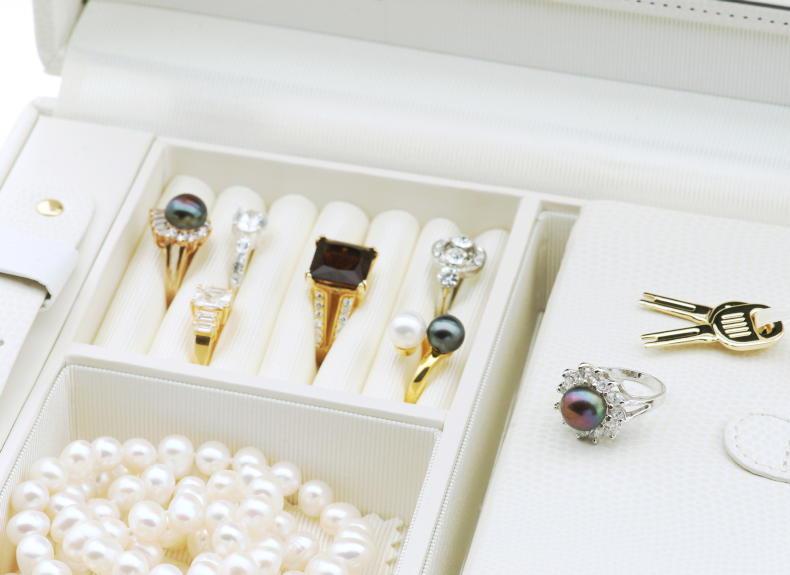Dear Money Mentor
I am a widow (78), living next door to my son and his family. He has been running the family farm for the past five years. He inherited the farm and dwelling house from us a few years before my husband passed.
We built an extension to the original farm house when our son got married. I have my own front door but there is a connecting door to the main house which we can use if needs be. I am very independent but I like someone living next door.
My issue is I own some non-farm assets. I have a holiday cottage which I rent out, some jewellery, shares and some savings. One of my daughters takes care of renting out for me, as the property is by the sea and I pay her expenses from the rental income. It is usually rented out from April to September each year.
I wish to update my will to include my two daughters and five grandchildren. I do not want anyone to have a tax liability if possible. I would like my daughter to inherit the holiday cottage, worth about €200,000 (my estimate), and my other daughter would inherit my shares (estimate value €100,000) and my jewellery.
I would like to give each of my grandchildren a sum of money, depending on my savings at the time, to be shared equally. I have a State pension. I am wondering would it be better to give each grandchild a sum of money each year now. I would like the inheritance to be as tax efficient as possible, so any advice is welcome.
Regards,
Aine.
Dear Aine,
Thank you for your letter. It is great to be planning ahead which can prove invaluable. There is a tax covering gifts and inheritance called Capital Acquisitions Tax (CAT) which arises on the value of property passing to someone on the death of another, or if gifted while still alive. Husbands and wives and certain charitable purposes are exempt from this tax, which is currently charged at a rate of 33%.
Thankfully, there are various thresholds which can apply depending on the relationship between the giver (the donor) and the recipient, and only anything above these amounts is taxable (see table).
This tax free amount is not an annual allowance as all gifts or inheritances are aggregated with all gifts/inheritances received since 5 December 1991.
Aine, each of your daughters can inherit up to €335,000 from you without any CAT liability. So based on what you have said both daughters seem to be within that threshold. I am assuming you have not given them any other gifts since 1991. You are receiving rental income and this income is subject to income tax less any allowable expenses. However, you only pay income tax on any rental profit, and you will have the annual income tax exemption limit for people aged 65 or over.
With regard to your grandchildren, the lifetime tax free group threshold is €32,500 which means they can inherit up to this amount from you, without incurring any CAT liability.
The small gift exemption might be useful for you. This allows anyone to give anyone up to €3,000 per annum with no CAT liability accruing. This also doesn’t count towards the recipient’s total accumulated lifetime inheritance tax –free threshold. You could give each of your grandchildren up to €3,000 per annum if you wished, regardless of how old they are.
This gift doesn’t have to be in cash, it can be jewellery, or shares or even cars. To be tax free the only requirement is that it must be no more than €3,000 each year. You can also give this amount to any of your daughters each year.
I hope this is of help to you. Be sure to get professional legal and tax advice before updating your will.
Regards,
Margaret.
Insurance policies that can cover potential CAT liabilities
There are insurance policies you can take out that will cover the CAT tax bill that might apply to anyone you wish to gift a large inheritance. This is known as a Section 72 policy. The cost of cover will be age dependent and will be significantly lower for married couples where the cover will be on the life of the longest survivor. These insurance policies can cover CAT liabilities but are not in themselves liable to tax, if used to pay inheritance tax. The policy has many conditions, such as regular premium payments must be made for at least eight years without any breaks before the proceeds are exempt from gift tax. The policy holder covered must be the person paying the premium. These Section 72 policies can be costly, but perhaps not as costly as a CAT liability.
A Section 73 policy is also available which offers a tax efficient way to pass on assets during your lifetime, and there is a definite likelihood of gift tax to the beneficiary as the value exceeds the CAT thresholds. These policies also contain conditions.
Early planning when gifting or passing on inheritance makes sense, and can help avoid a CAT liability for the beneficiaries.
Read more
Money Mentor: Fair Deal Scheme becomes a little fairer for farming families
Budget 2022: what’s in store for farming families
Dear Money Mentor
I am a widow (78), living next door to my son and his family. He has been running the family farm for the past five years. He inherited the farm and dwelling house from us a few years before my husband passed.
We built an extension to the original farm house when our son got married. I have my own front door but there is a connecting door to the main house which we can use if needs be. I am very independent but I like someone living next door.
My issue is I own some non-farm assets. I have a holiday cottage which I rent out, some jewellery, shares and some savings. One of my daughters takes care of renting out for me, as the property is by the sea and I pay her expenses from the rental income. It is usually rented out from April to September each year.
I wish to update my will to include my two daughters and five grandchildren. I do not want anyone to have a tax liability if possible. I would like my daughter to inherit the holiday cottage, worth about €200,000 (my estimate), and my other daughter would inherit my shares (estimate value €100,000) and my jewellery.
I would like to give each of my grandchildren a sum of money, depending on my savings at the time, to be shared equally. I have a State pension. I am wondering would it be better to give each grandchild a sum of money each year now. I would like the inheritance to be as tax efficient as possible, so any advice is welcome.
Regards,
Aine.
Dear Aine,
Thank you for your letter. It is great to be planning ahead which can prove invaluable. There is a tax covering gifts and inheritance called Capital Acquisitions Tax (CAT) which arises on the value of property passing to someone on the death of another, or if gifted while still alive. Husbands and wives and certain charitable purposes are exempt from this tax, which is currently charged at a rate of 33%.
Thankfully, there are various thresholds which can apply depending on the relationship between the giver (the donor) and the recipient, and only anything above these amounts is taxable (see table).
This tax free amount is not an annual allowance as all gifts or inheritances are aggregated with all gifts/inheritances received since 5 December 1991.
Aine, each of your daughters can inherit up to €335,000 from you without any CAT liability. So based on what you have said both daughters seem to be within that threshold. I am assuming you have not given them any other gifts since 1991. You are receiving rental income and this income is subject to income tax less any allowable expenses. However, you only pay income tax on any rental profit, and you will have the annual income tax exemption limit for people aged 65 or over.
With regard to your grandchildren, the lifetime tax free group threshold is €32,500 which means they can inherit up to this amount from you, without incurring any CAT liability.
The small gift exemption might be useful for you. This allows anyone to give anyone up to €3,000 per annum with no CAT liability accruing. This also doesn’t count towards the recipient’s total accumulated lifetime inheritance tax –free threshold. You could give each of your grandchildren up to €3,000 per annum if you wished, regardless of how old they are.
This gift doesn’t have to be in cash, it can be jewellery, or shares or even cars. To be tax free the only requirement is that it must be no more than €3,000 each year. You can also give this amount to any of your daughters each year.
I hope this is of help to you. Be sure to get professional legal and tax advice before updating your will.
Regards,
Margaret.
Insurance policies that can cover potential CAT liabilities
There are insurance policies you can take out that will cover the CAT tax bill that might apply to anyone you wish to gift a large inheritance. This is known as a Section 72 policy. The cost of cover will be age dependent and will be significantly lower for married couples where the cover will be on the life of the longest survivor. These insurance policies can cover CAT liabilities but are not in themselves liable to tax, if used to pay inheritance tax. The policy has many conditions, such as regular premium payments must be made for at least eight years without any breaks before the proceeds are exempt from gift tax. The policy holder covered must be the person paying the premium. These Section 72 policies can be costly, but perhaps not as costly as a CAT liability.
A Section 73 policy is also available which offers a tax efficient way to pass on assets during your lifetime, and there is a definite likelihood of gift tax to the beneficiary as the value exceeds the CAT thresholds. These policies also contain conditions.
Early planning when gifting or passing on inheritance makes sense, and can help avoid a CAT liability for the beneficiaries.
Read more
Money Mentor: Fair Deal Scheme becomes a little fairer for farming families
Budget 2022: what’s in store for farming families









SHARING OPTIONS